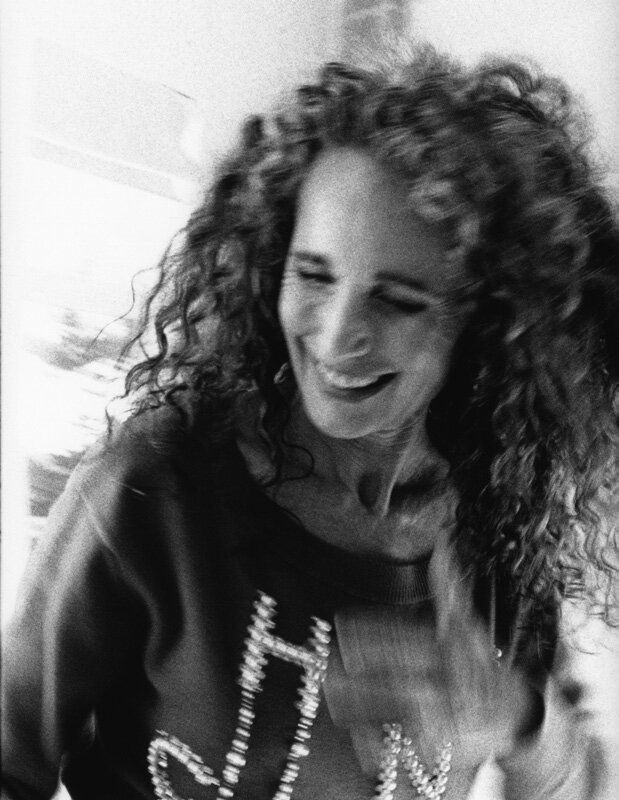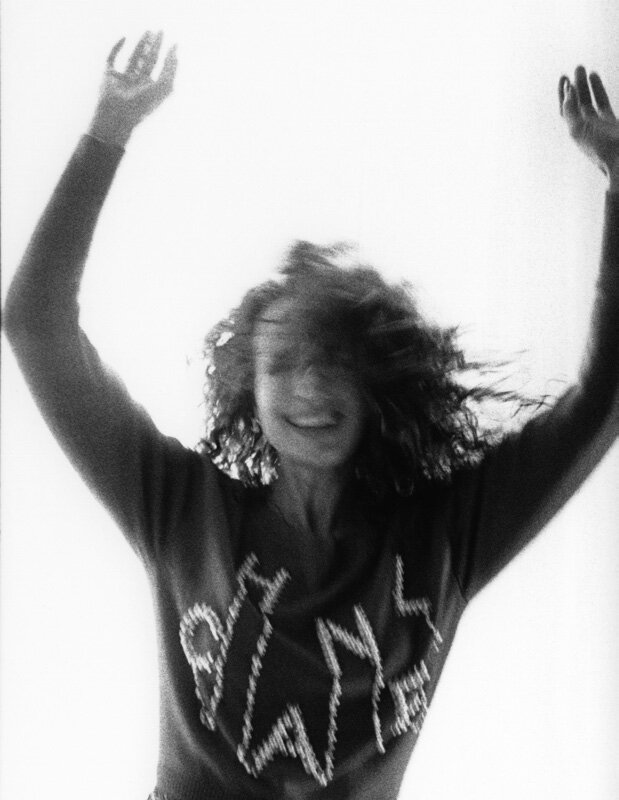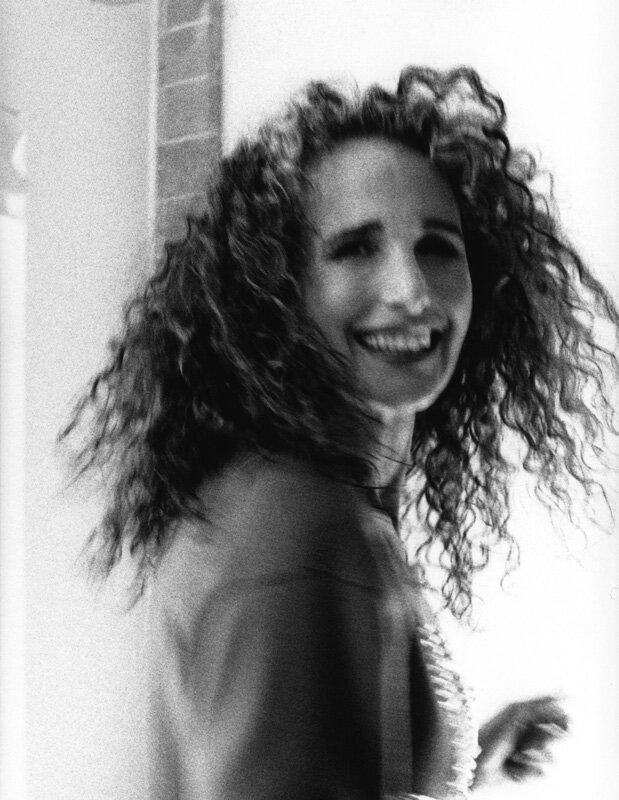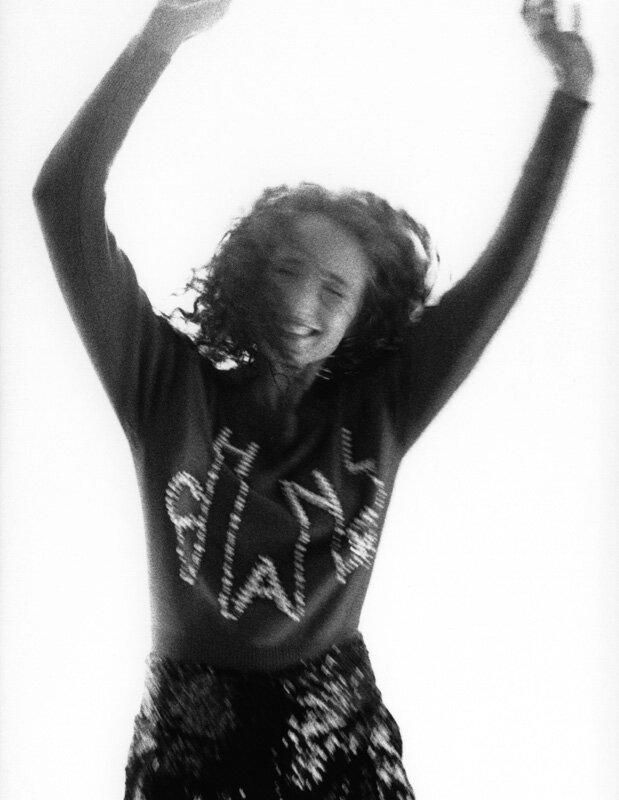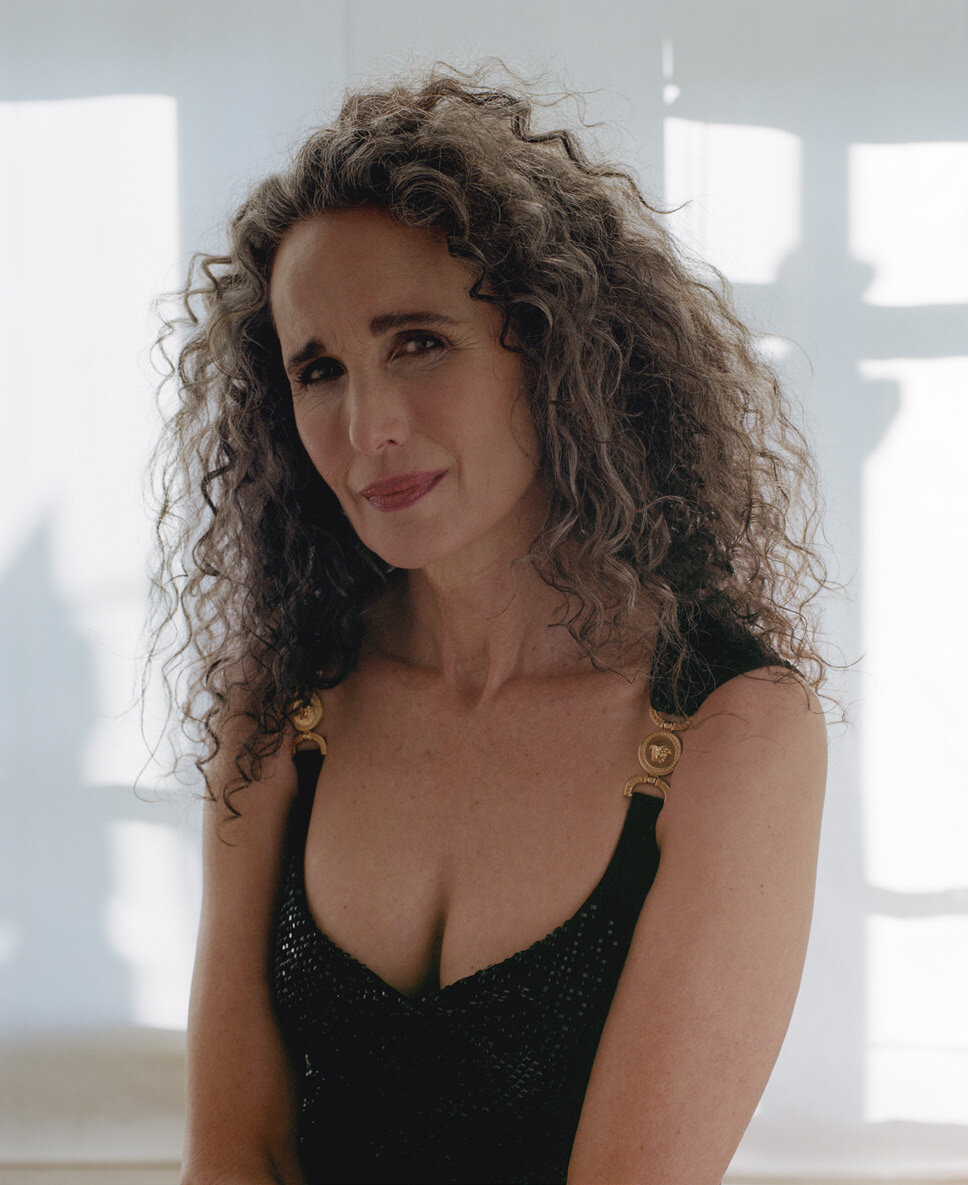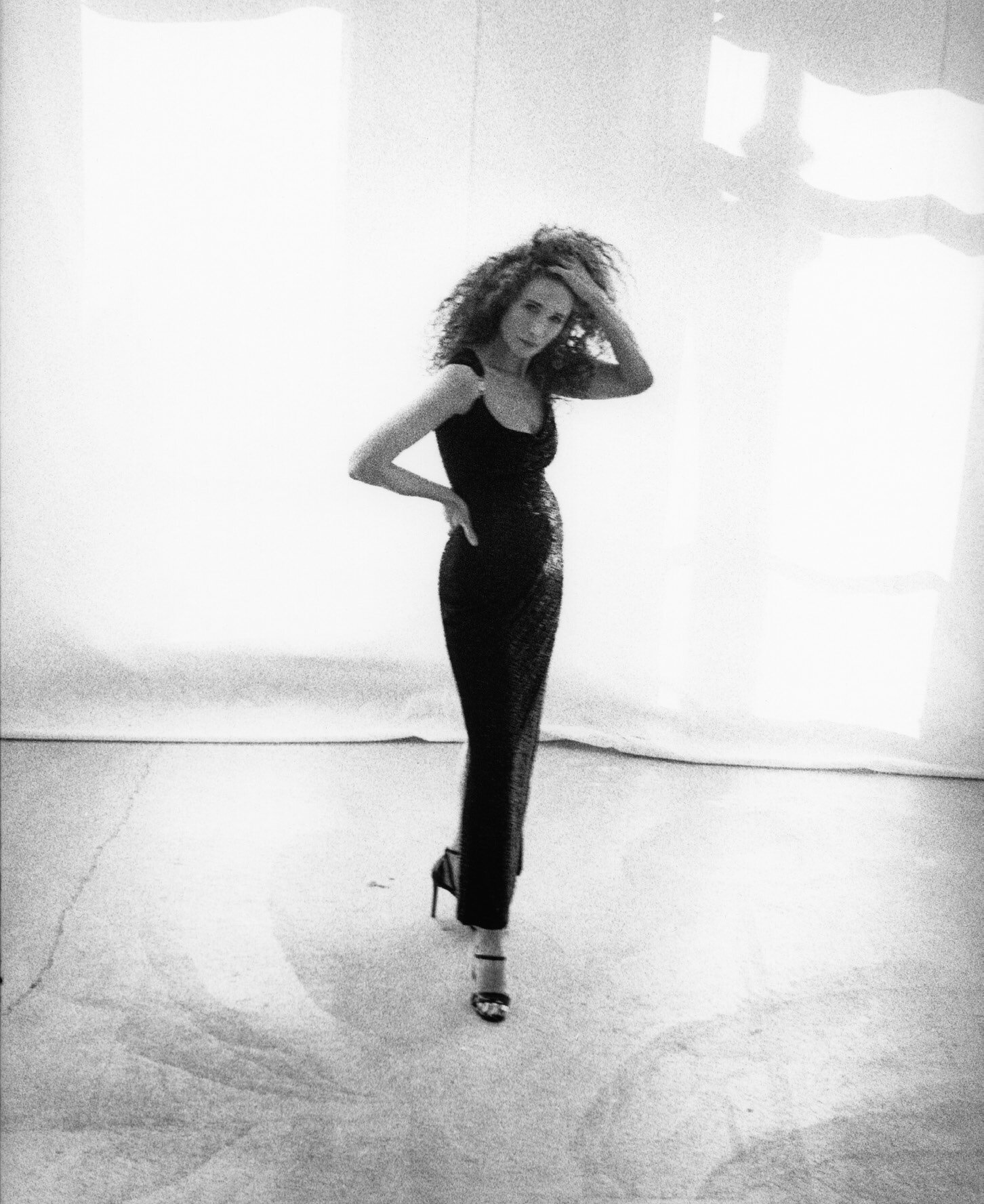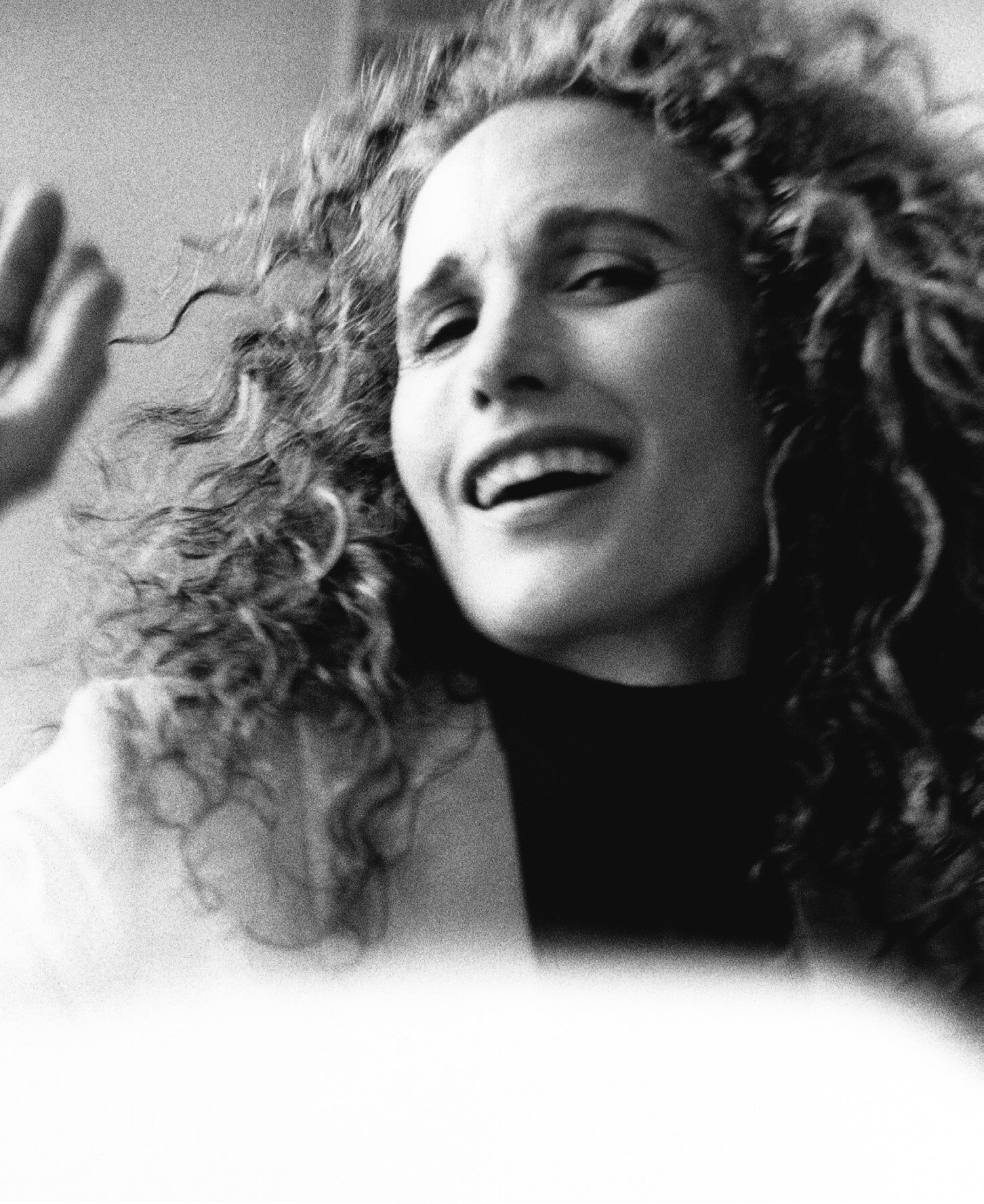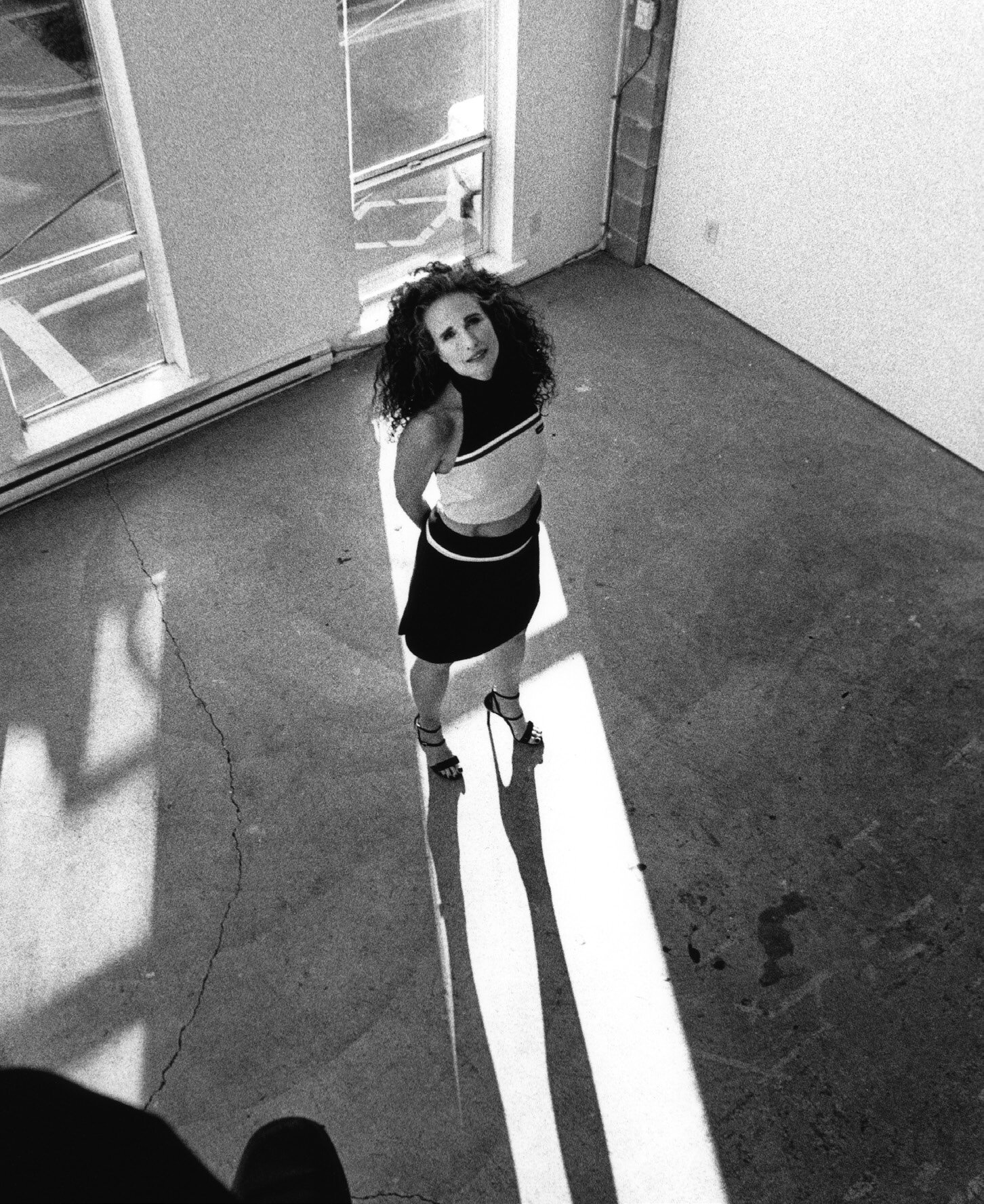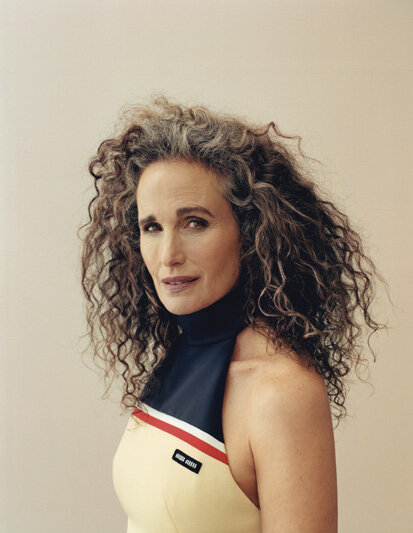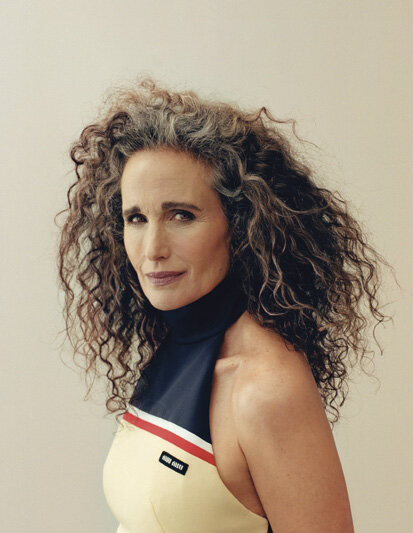💭 Andie MacDowell for ODDA Magazine
This article first appeared in the ODDA Magazine 20th Issue “There is a Time”.
ANDIE MacDOWELL
Long-distance soul sisters actress Andie MacDowell and acclaimed author Anne Lamott connect online for a powerful and heartfelt conversation. Where they share openly and freely about their experiences of co-dependent childhoods caring for alcoholic parents and how they have used their artistic voices to work through the pain of the past. How spirituality and a connection to nature and animals have helped them to heal and their hopes for their children and the future.
ANNE LAMOTT: I think we should start off with a little prayer Andie.
ANDIE MACDOWELL: Awhh you might make me cry, but go for it! It might make me calm down.
A.L. Alright, let’s have a deep cleansing breath. Close our eyes and settle down into our hearts and our center and out of our crazy pinball machine minds. Mother, father, God, source, and creator, and sustainer we are your very loving daughters who have loved each other for a long time, but are just meeting now. So my prayer is that today I just get to know my sister, and I want to let her get to know me. And I hope that what we say will be of help to people who read this someday, who might be feeling weak or ashamed or alone. I just pray that our words might be bread for the journey for whoever ends up hearing us today and we just thank you in advance for all of your tender mercies so far and still to come and for helping us figure this out as we go.
A.M. Thank you so much, Anne! You did make me cry...so much for the makeup job! (laughing).
A.L. Andie, I feel like we know each other because we have loved each other for so long, even though we have never met. One time, a couple of years ago, I was raising money to help girls in Uganda learn how to do electrical repairs and how to repair cars and I put out the word that we needed money, and I couldn’t believe that you sent me so much!
A.M. Oh, I should have sent more!
“My kids get it, they see how much fear there is in my body. That I panic a lot. They understand where that comes from. But I feel bad because they have had to take care of me, in some sense and that is just the repercussions of the damage that was done to me.”
A.L. No, no... but, I realized that you and I are on the same path, that by giving, we receive. I was so blown away by how much you gave us, that was like the equivalent of three months of teaching girls and women how to have futures! They were able to start brand new chapters of their lives.
A.M. Yeah, when you are doing stuff like that, and you hear what these women are doing, it really puts stuff in perspective, doesn’t it? It is like all the things that I am worried about just become so small. But you know my experience of that moment, being in my loneliness and having you communicate with me through Twitter was so touching to me. That is one of the interesting things I think about technology, especially now with COVID, because I am kind of a lonely soul and I am not a hugely social person and I feel inadequate in so many ways. But I see people on Instagram and I can talk to them that way. I find that fascinating, that you can actually, I mean I met you and first talked to you through Twitter!
A.L. It was your heart talking to me and my heart talking to you because we couldn’t be together in a physical space. Because we are fond of each other and bonded in some way, it just makes me believe that the space-time continuum is not all it is cracked up to be. We have some kind of umbilical connection. I have never gotten to hug you or kiss you, or take a bite of your food, but we will. And in the meantime, there was this other thing, outside the continuum, where we just fully rocked each other.
A.M. But I think so much of that comes from your books. You found a soul sister in me because in your books you are so real and so honest. And you are so self-deprecating and funny and you are not ashamed to show that you are not perfect and that you make mistakes. I have just re-listened to three of your books, and there is this one part where you talk about having thoughts about wanting to jump off of a building, and a priest says to you “who doesn’t”. I thought that was so funny and charming because I have a lot of those neuroses inside of me, like neurotic thoughts. Like when I moved to Venice Beach in California, there are these tsunami signs all over the place and I became very obsessed with the idea that I was going to be caught up in a tsunami, I almost felt like the ocean was going to suck me in.
A.L. I wouldn’t call it neurotic behavior, I think it is how we survived having parents that were so damaged. We both grew up around alcoholism. I had unhappy parents, there was alcoholism and blackbelt level co-dependence and I was this perfect little girl. I am 67 next month and I have spent my whole life recovering from perfectionism because it is the voice of the oppressor, the voice of the enemy. Because when I was 5 years old and my baby brother was born, I felt like I was handed a clipboard and I was handed a caseload. I had to help dad not drink too much and not have affairs. I had to help my mother who was very very heavy, and I had an older brother who was unhappy with me and I had this little baby to take care of too. And one of my survival tools, besides trying to save and fix and rescue them all with my little clipboard, was to anticipate what might go wrong. And I remember being at the dentist office in this tall building in San Francisco when I was a little, back when you could still open the windows, and I remember being drawn to the open window in the waiting room, and I could feel some energy pulling me towards the open window. I remember digging my heels into the ground and holding onto the chair I was sitting in to keep me from going to the window. But all of these survival tools I learned as a kid are what I have spent most of my life trying to heal from.
A.M. Yes, I can totally relate, I have a lot of PTSD. Right after I was born, my mother was diagnosed with schizophrenia and they gave her shock treatments. I was taken away from her when I was very young, so who knows what that did to me psychologically. When she came back she became a full-blown alcoholic, that is how she dealt with her issues, there was no support system or real resources back then. Now we are much more compassionate with people who have these kinds of issues. And with my kids, we talk about all kinds of stuff, there is none of the shame that there was back then when everything was so hush-hush. So I feel like we are evolving as humans. My kids get it, they see how much fear there is in my body, that I panic a lot. They understand where that comes from. But I feel bad because they have had to take care of me, in some sense, and that is just the repercussions of the damage that was done to me. I have so many horrible memories. But I tell my kids, “you can do better. Each generation can do better, you can have a better family.”
And it is so interesting because the role that I am playing now in this new series I am shooting, called “Maid”, the character’s name is Paula, and my mother’s name is Paula and in the script, she is manic depressive. That is not really what my mother was, but there are components and pieces that I understand.
A.L. Tell me more about this Paula that you are inhabiting now.
A.M. Well, what is really interesting is I have a really great relationship with all of my kids, but I was shocked when I got the call that my youngest daughter [actress Margaret Qualley] wanted to work with me. Because she has been so independent of me, she really wanted to make her own way in the business, because people have this tendency to take your power away, and people would say things to her like “it’s been easy for you”. She is really good at accepting the fact that she has had privilege, she is such a smart young lady. She is really brilliant and really with it. But honestly, it doesn’t really work that way, yes she might get the door open, because of me, but that is as far as it goes, you know, you have to be able to do it, do the work, and that is up to her, I can’t do it for her. So I was so surprised when she wanted to work with me on this project. Plus the job is such a great job, and it is a big job, with Netflix and the director John Wells. And the character is unbelievable! Once I read the script I was like “Oh God I can’t believe I have been given this gift”. The writing is really good - it’s a dark comedy which is really my comfortable place. And getting to dig into some scenes that are really really vulnerable and not always nice was amazing. My character is often the life of the party and she is really out there and her thinking is very bright and interesting. She is very dynamic and powerful and overly sexual, extremely overly sexual, that is her force that makes her feel ok! And my daughter’s character is the opposite, so it’s a really interesting dynamic.
A.L. So I want to ask you a bit about growing up in the deep south and how that determined who you grew up to be, both good and bad.
A.M. It was interesting. Because my mother didn’t pay any attention to me when I was little. I was very very free and I got to do what I wanted to do from a very young age and I would spend most of my time outside and barefoot doing whatever I wanted to do. Back behind my house was an old Antebellum house and I would go over there as a kid and play. And we had another neighbor, he was a sweet man and he ended up having a stroke so he was bedridden and couldn’t speak. My sister and I would go over there as kids and we would dance for him. I think we had kindness in our hearts but I also think there was a bit of morbid fascination as well, you know, we were children. And I remember his wife was just lovely. But the guy with the Antebellum house, I found out later he was part of the KKK, and I remember these little Black children would come by on their bicycles and I was completely terrified and I would run up the hill and tell them to be careful and not to come around this man. Some of the stuff that I saw as a child, that the rest of my family had no idea I was seeing, was fascinating. So there is this kind of mixture, when I look back on my childhood, of happiness and darkness all mixed together.
A.L. I wanted to know if you would feel comfortable talking about your spiritual evolution and how you on a daily basis do radical self-care and tend to your own soul?
A.M. I should probably do more. But what I do is I hike every day. I am not good at meditating. I can’t sit down and stay still. I think that is leftover anxiety stuff. I always need to keep busy, you know, clean the shelves and stuff like that. But I walk every day and I think that is how I pray. And what I try to do is not get lost in my head, but to stay present, to hear the birds, and to see the sun and the sky. I try not to take a mental trip somewhere else. I also love doing yoga. But I have a question for you - you got married for the first time in your sixties, what was that like? Because I am 62 and I have been alone for so long now I can’t even imagine sharing the bed anymore. I really like sleeping alone, I like taking up all the space. I am so independent now I just don’t know if I could do it….
A.L. You know, all truth is paradox…. I got married three days after I got Medicare. I mean I didn’t see a lot of happy marriages that I would agree to be in, which was the main thing for me. I mostly see marriages where the wife takes on a lot more of everything. Not just the housework but she ends up being the therapist, and the minister, and the sex worker, and of course raising the children. I also was not very good at picking men. And with Neal [Allen], we met on a dating site for people over 50. And the thing is, he is allergic to cats, and my whole life is cats. So I thought to myself “well I don’t want to be with him because he could never come to my house and I hate to leave my house and I prefer to be alone”.
A.M. Me too!
A.L. And he likes to be with people and he likes to talk. Whereas I can go days without talking. I just read. But he told me this trick, if you put Brewer’s yeast in the kibble that would help with the allergies. So then after about a year of dating - and he is so funny and smart and handsome and tall and spiritual - one day he just turned to me and asked me to marry him. I was so shocked. And the thing is, we had just lost our old cat and so I said to him, well can we get another cat? And he said ok, so then I said: “ok I’ll marry you!.”
In conversation with ANNE LAMOTT
Conversation curated by JESSICA MICHAULT
Edited by EMMELEIA DALIWAN
Photographer JUSTIN ARANHA
Fashion editor MARIAELENA MORELLI
Creative director DAVID MARTIN
Make-up artist and hair stylist ANYA ELLIS @LizbellAgency
Photographer assistant PATRICK MENARD
Fashion assistants EMILY GRAY @LizbellAgency and ROBERTA CONSOLE
Special thanks to NANCY AND LOUIS from THRULINE

